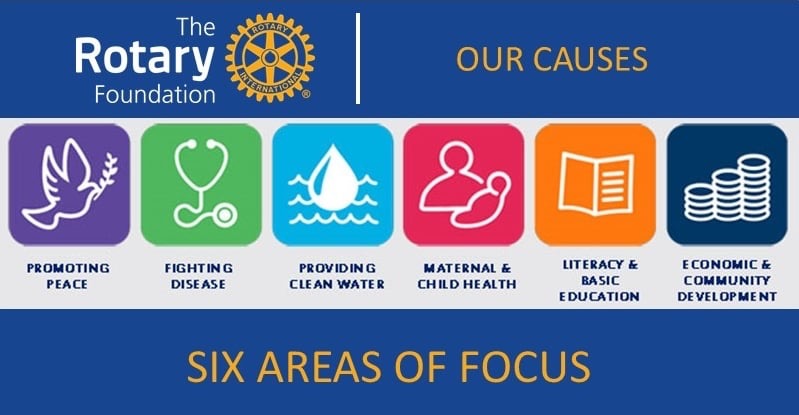Rotary is dedicated to six areas of focus to build international relationships, improve lives, and create a better world to support our peace efforts and end polio forever.
Promoting peace
Rotary encourages conversations to foster understanding within and across cultures. We train adults and young leaders to prevent and mediate conflict and help refugees who have fled dangerous areas. Learn More
Fighting disease
We educate and equip communities to stop the spread of life-threatening diseases like polio, HIV/AIDS, and malaria. We improve and expand access to low-cost and free health care in developing areas. Learn More
Providing clean water, sanitation, and hygiene
We support local solutions to bring clean water, sanitation, and hygiene to more people every day. We don’t just build wells and walk away. We share our expertise with community leaders and educators to make sure our projects succeed long-term. Learn More
Saving mothers and children
Nearly 6 million children under the age of five die each year because of malnutrition, poor health care, and inadequate sanitation. We expand access to quality care, so mothers and their children can live and grow stronger. Learn More
Supporting education
More than 775 million people over the age of 15 are illiterate. Our goal is to strengthen the capacity of communities to support basic education and literacy, reduce gender disparity in education, and increase adult literacy. Learn More
Growing local economies
We carry out service projects that enhance economic and community development and create opportunities for decent and productive work for young and old. We also strengthen local entrepreneurs and community leaders, particularly women, in impoverished communities. Learn More
Ending polio forever
Rotary has been working to eradicate polio for over 30 years, and our goal of ridding the earth of this disease is in sight. We started in 1979 with vaccinations for 6 million children in the Philippines. Today, Afghanistan, Nigeria, and Pakistan are the only countries where polio remains endemic.





